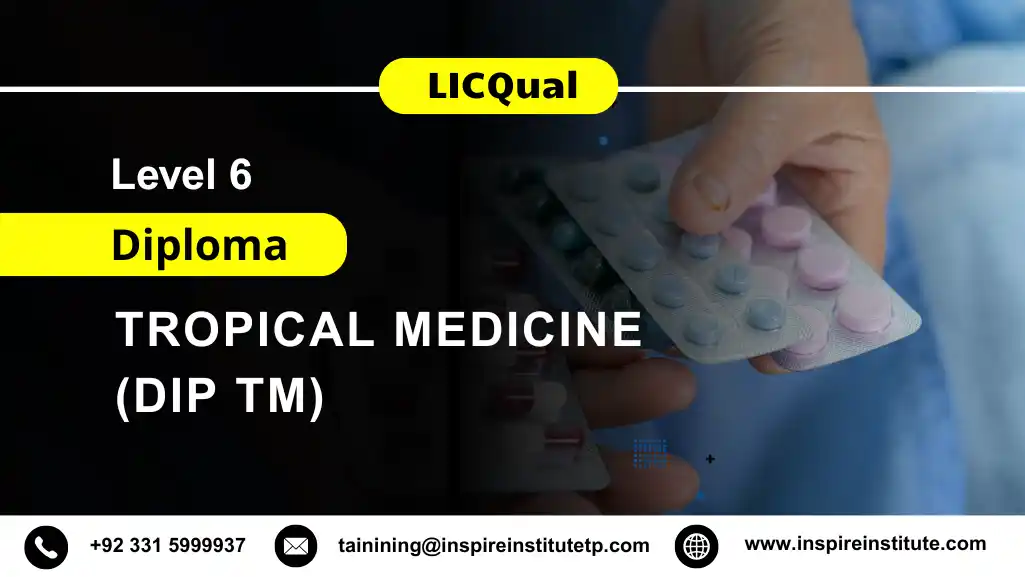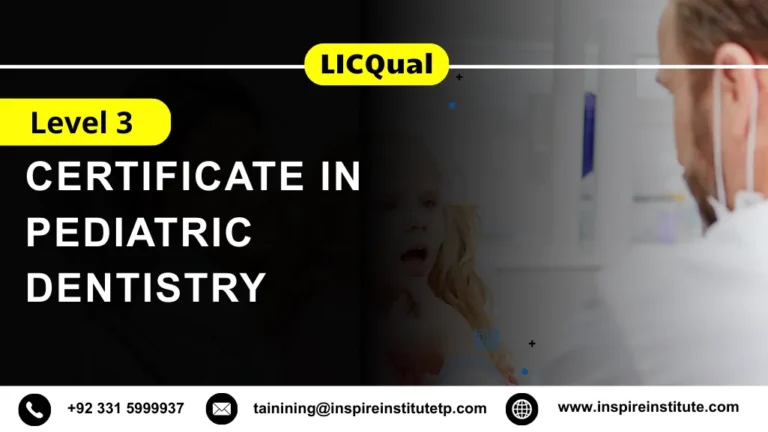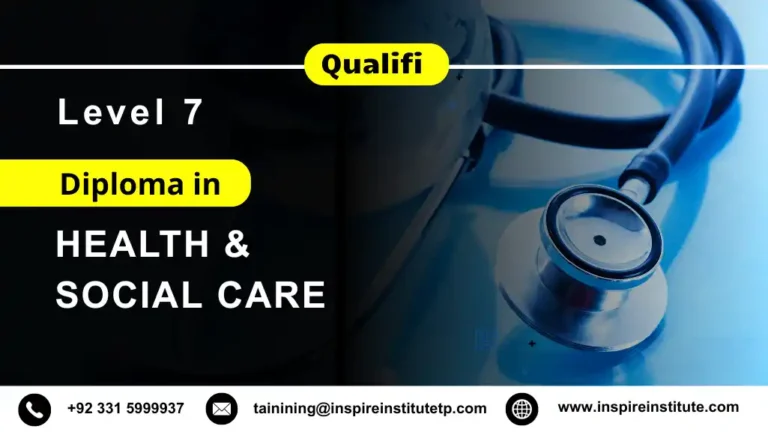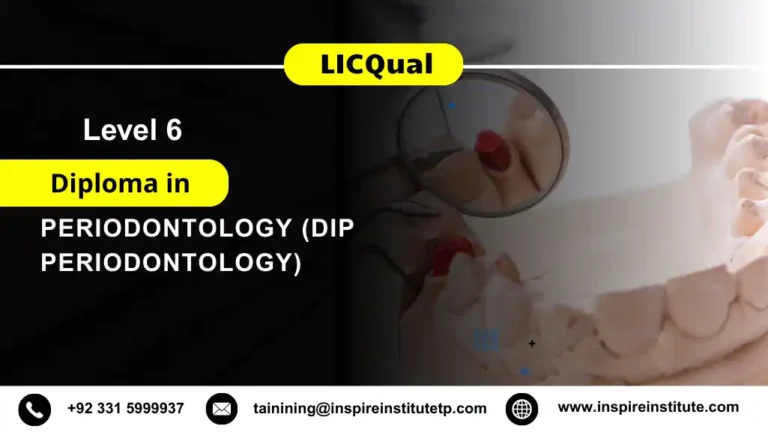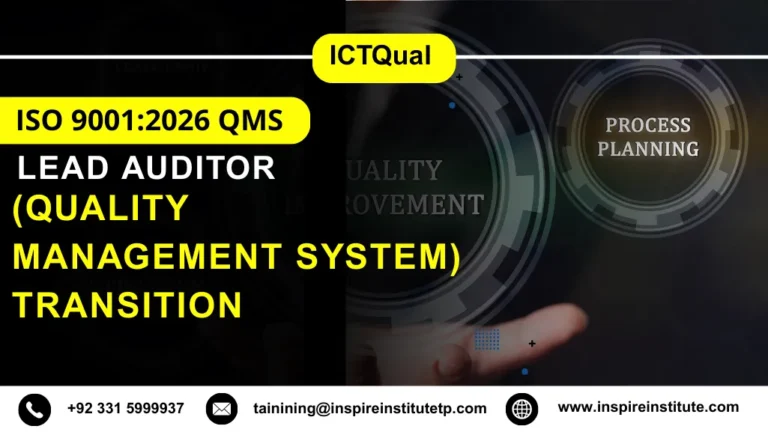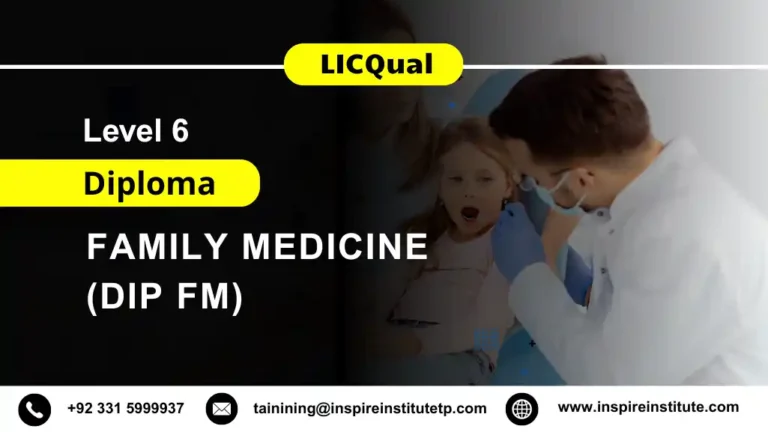LICQual Level 6 Diploma in Tropical Medicine (Dip TM)
The LICQual Level 6 Diploma in Tropical Medicine (Dip TM) is a UK-accredited qualification designed for healthcare professionals, clinicians, and researchers aiming to advance their expertise in tropical and infectious diseases. In an era where global travel and climate change increase the risk and spread of tropical illnesses, this course provides essential knowledge and practical skills to diagnose, manage, and prevent these complex health challenges effectively. The program equips learners with the tools to enhance patient care, improve public health outcomes, and contribute to international healthcare initiatives.
The course offers a comprehensive exploration of tropical medicine principles, including parasitology, vector-borne diseases, malaria, dengue, leishmaniasis, and other region-specific infections. Learners gain in-depth knowledge of disease pathophysiology, diagnostic techniques, treatment protocols, and preventive strategies. The curriculum integrates evidence-based guidelines to ensure that professionals are prepared to apply global standards in clinical and public health settings.
Through practical application, participants develop critical skills in patient assessment, laboratory diagnostics, outbreak investigation, and management of endemic diseases. The assignment-based approach allows learners to engage with real-world case studies and research projects, enhancing their ability to implement effective interventions in diverse healthcare environments.
The LICQual Level 6 Diploma in Tropical Medicine emphasizes preventive medicine and public health strategies, enabling learners to design and evaluate programs aimed at reducing disease transmission and improving community health outcomes. Graduates gain the competence to work with international health organizations, NGOs, and local healthcare systems in both clinical and advisory capacities.
Why Choose this Qualification
The LICQual Level 6 Diploma in Tropical Medicine (Dip TM) is a UK-accredited, globally recognized qualification designed for healthcare professionals, clinicians, and public health practitioners. This course equips learners with advanced knowledge and practical expertise to prevent, diagnose, and manage tropical and infectious diseases effectively. By combining theoretical foundations with real-world applications, the diploma enhances professional competence, expands career prospects, and enables learners to make a meaningful impact on global health.
Key Reasons to Choose this Qualification
Specialist Knowledge
- Gain comprehensive understanding of tropical medicine, including parasitology, vector-borne diseases, malaria, dengue, leishmaniasis, and other endemic infections.
- Develop in-depth knowledge of pathophysiology, diagnostic techniques, and evidence-based treatment protocols.
- Learn about preventive strategies and global guidelines for tropical disease control.
- Understand public health approaches to epidemic management and disease surveillance.
- Build a solid foundation for advanced clinical practice and research in tropical medicine.
Practical Application
- Strengthen clinical assessment and diagnostic skills for tropical diseases.
- Apply evidence-based treatment plans in realistic case studies and field scenarios.
- Develop skills in outbreak investigation, laboratory diagnostics, and patient management.
- Enhance decision-making and problem-solving in diverse healthcare settings.
- Implement practical strategies for disease prevention and control in tropical regions.
Recognised Qualification
- Earn a UK-accredited diploma that validates expertise in tropical medicine.
- Receive a globally recognized credential accepted by hospitals, NGOs, and health organizations.
- Increase employability and professional credibility internationally.
- Open opportunities for advanced postgraduate studies or specialised research.
- Meet global standards in infectious disease management and tropical healthcare.
Flexible Learning Pathway
- Study at your own pace with an assignment-based structure.
- Access digital learning resources, expert mentorship, and online support.
- Balance professional duties with academic advancement.
- Benefit from interactive modules designed for practical skill development.
- Progress through a structured curriculum without disrupting your career.
Evidence-Based Training
- Explore the latest research, clinical guidelines, and epidemiological models.
- Learn to critically analyse scientific literature and implement research findings.
- Gain expertise in applying evidence-based strategies to tropical disease management.
- Understand health data collection, interpretation, and reporting for informed decisions.
- Develop skills to evaluate the effectiveness of public health interventions.
Career Development
- Expand career prospects in hospitals, tropical disease clinics, research institutions, and NGOs.
- Prepare for roles such as Tropical Medicine Specialist, Epidemiologist, Clinical Advisor, or Public Health Officer.
- Strengthen eligibility for advanced medical or public health programs.
- Build professional credentials for global healthcare opportunities.
- Enhance leadership skills for managing health programs in tropical regions.
Enhanced Global Health Impact
- Design sustainable, culturally sensitive tropical disease prevention programs.
- Implement interventions that reduce disease transmission in at-risk communities.
- Advocate for improved healthcare access and patient education in tropical regions.
- Contribute to global public health initiatives addressing infectious disease threats.
- Ensure ethical and effective healthcare delivery with measurable community impact.
Professional Growth
- Develop leadership, analytical, and research skills essential for tropical medicine.
- Strengthen clinical decision-making and interdisciplinary collaboration abilities.
- Gain confidence in managing complex tropical disease cases.
- Advance reflective learning and innovative approaches to healthcare challenges.
- Emerge as a skilled, competent, and globally aware tropical medicine professional.
The LICQual Level 6 Diploma in Tropical Medicine (Dip TM) empowers healthcare professionals to enhance their knowledge, practical skills, and career opportunities while contributing meaningfully to global health initiatives. It provides a robust foundation for clinical excellence, research, and public health leadership in tropical medicine.ic practice worldwide.
Course Overview
LICQual UK Awarding Body
Average Completion Time:
6-24 Months
Study Units: 6 Units
Evidence & Assignment Based
Mandatory Units
Who Should Take This Course
The LICQual Level 6 Diploma in Tropical Medicine (Dip TM) is designed for healthcare professionals seeking advanced expertise in the diagnosis, management, and prevention of tropical and infectious diseases. This course is ideal for clinicians, public health practitioners, and medical researchers who aim to work effectively in tropical and subtropical regions or global health settings. It provides learners with the knowledge, skills, and practical experience needed to address complex health challenges while enhancing professional credibility and career prospects.
This course is suitable for
Medical Practitioners
- Doctors and physicians seeking specialised knowledge in tropical medicine and infectious diseases.
- Professionals involved in diagnosing, treating, and managing endemic infections.
- Clinicians aiming to work in hospitals, clinics, or international healthcare settings.
- Medical practitioners looking to enhance their skills in outbreak investigation and disease prevention.
- Physicians preparing for advanced roles in global health or public health research.
Public Health Professionals
- Public health officers engaged in tropical disease control and prevention programs.
- Epidemiologists working on outbreak monitoring, surveillance, and data analysis.
- Healthcare workers implementing community-based interventions in at-risk regions.
- Professionals seeking to strengthen expertise in evidence-based public health strategies.
- Public health specialists aiming to contribute to policy development for tropical disease management.
Nurses and Clinical Officers
- Nurses involved in patient care and disease prevention in tropical regions.
- Clinical officers supporting treatment programs for infectious and vector-borne diseases.
- Healthcare practitioners aiming to enhance clinical assessment and patient management skills.
- Professionals seeking advanced training in infection control and emergency response.
- Nurses and officers looking to pursue leadership roles in tropical healthcare delivery.
Laboratory and Research Professionals
- Clinical researchers studying parasitology, virology, and bacteriology in tropical medicine.
- Laboratory technicians conducting diagnostics for tropical and infectious diseases.
- Professionals aiming to strengthen analytical, research, and data interpretation skills.
- Researchers interested in designing studies for disease surveillance and epidemiology.
- Laboratory staff seeking to contribute to evidence-based interventions and public health programs.
NGO and Humanitarian Workers
- Field staff engaged in tropical health projects, vaccination campaigns, and community outreach.
- Professionals working with international health organizations in endemic regions.
- Humanitarian workers involved in disease prevention and health promotion programs.
- Individuals seeking to improve program management and health outcomes in vulnerable populations.
- Practitioners aiming to apply clinical and public health knowledge in real-world tropical settings.
Students and Graduates in Health Sciences
- Recent graduates in medicine, nursing, or allied health seeking advanced specialization.
- Students pursuing careers in infectious disease management, global health, or tropical medicine.
- Graduates looking to enhance their employability in hospitals, research institutes, or NGOs.
- Health science students aiming to gain hands-on knowledge in disease prevention and control.
- Individuals preparing for postgraduate programs in tropical medicine or public health.
Global Health Professionals
- Professionals working on international health projects targeting endemic diseases.
- Consultants supporting governments and organizations in tropical disease management.
- Professionals aiming to improve cross-border disease surveillance and outbreak response.
- Individuals seeking to contribute to global health policy development.
- Practitioners aspiring to become leaders in tropical and infectious disease programs.
Travel Medicine Specialists
- Clinicians providing pre-travel advice, vaccination, and preventive care for travelers.
- Health professionals managing tropical infections in expatriates, tourists, and remote workers.
- Practitioners seeking to improve risk assessment and preventive strategies for travelers.
- Professionals involved in occupational health programs in tropical regions.
- Specialists aiming to combine clinical knowledge with public health practices for travel medicine.
The LICQual Level 6 Diploma in Tropical Medicine (Dip TM) is ideal for healthcare professionals, researchers, and public health practitioners who want to excel in tropical disease management. By completing this course, learners gain advanced knowledge, practical expertise, and globally recognized credentials to make a significant impact in healthcare delivery, research, and policy development worldwide.pact on population health worldwide.mpassionate, evidence-based care and to contribute meaningfully to the advancement of mental health on both national and global levels.
Course Benefits
The LICQual Level 6 Diploma in Tropical Medicine (Dip TM) is a UK-accredited qualification designed for healthcare professionals, clinicians, public health practitioners, and global health specialists who aim to advance their knowledge and practical expertise in tropical and infectious diseases. This assignment-based Diploma in Tropical Medicine integrates theoretical foundations with applied clinical practice, enabling learners to diagnose, manage, and prevent tropical infections effectively. Through evidence-based learning and flexible study pathways, this qualification equips professionals to address complex health challenges in tropical and subtropical regions with confidence and competence.
Key Benefits of the Course
- Specialist Knowledge:
Gain an in-depth understanding of tropical medicine principles, epidemiology, parasitology, virology, and bacteriology. Learners explore critical topics such as malaria, dengue, neglected tropical diseases, emerging infectious diseases, and global health initiatives. The course also covers vector control, disease surveillance, and outbreak management, equipping learners to deliver impactful interventions in endemic regions. - Practical Application:
Develop hands-on skills through case studies, research projects, and scenario-based assessments. Learners enhance their ability to diagnose, assess, and manage tropical diseases using evidence-based medical techniques. The Diploma in Tropical Medicine also strengthens communication and clinical decision-making skills, ensuring effective collaboration with multidisciplinary healthcare teams. - Recognised Qualification:
Earn a prestigious UK-accredited Diploma in Tropical Medicine (Dip TM) that validates your professional competence. This globally recognised qualification meets international medical standards, enhances employability across hospitals, clinics, NGOs, and research institutions, and opens pathways for further postgraduate studies or specialisation in tropical medicine. - Flexible Learning Pathway:
Designed for busy professionals, the assignment-based structure allows learners to study at their own pace. Access to digital learning resources, expert mentorship, and online academic support ensures a seamless balance between professional duties and academic advancement. - Evidence-Based Training:
Engage with the latest clinical guidelines, epidemiological data, and tropical health models. Learners gain the ability to critically appraise medical literature, implement validated interventions, and apply research-driven strategies to improve patient outcomes and public health in tropical regions. - Career Development:
Expand career opportunities across hospitals, international health organizations, research centres, and governmental agencies. Graduates may pursue roles such as Tropical Medicine Specialist, Clinical Officer, Epidemiologist, or Public Health Consultant. This qualification also serves as a foundation for advanced medical training or research in global health. - Enhanced Community Impact:
Learn to design ethical, sustainable, and culturally sensitive healthcare interventions. The course equips professionals to improve disease prevention strategies, patient care, and public health policies in endemic areas, contributing to long-term community well-being. - Professional Growth:
Strengthen critical thinking, leadership, research, and clinical decision-making skills vital for tropical medicine practice. Graduates emerge as competent, confident, and compassionate professionals capable of advancing standards in global health and infectious disease management.
The LICQual Level 6 Diploma in Tropical Medicine (Dip TM) empowers healthcare professionals to become leaders in tropical and infectious disease management through advanced knowledge, practical expertise, and internationally recognised credentials. It enhances career prospects while contributing significantly to the improvement of health outcomes in tropical regions worldwide.nd public well-being worldwide.ntal health services and patient outcomes worldwide.
Eligibility Criteria
The LICQual Level 6 Diploma in Tropical Medicine (Dip TM) is a UK-accredited qualification designed for healthcare professionals, clinicians, and global health practitioners who aim to advance their expertise in tropical and infectious diseases. This assignment-based diploma integrates theoretical knowledge with practical applications, preparing learners to assess, diagnose, manage, and prevent tropical illnesses effectively in real-world healthcare settings.
Educational Background:
Applicants should hold a recognised qualification in medicine, nursing, healthcare, microbiology, or a related medical or public health field. A Level 5 diploma or equivalent qualification in infectious disease management, tropical medicine, or global health may also be accepted. Candidates with international degrees in medicine, public health, or allied disciplines will be evaluated individually to determine eligibility and equivalence to UK standards.
Professional Experience:
A minimum of one year of experience in clinical practice, infectious disease management, public health, or a related healthcare field is recommended. Prior exposure to tropical disease diagnosis, patient care in endemic regions, or health program implementation is advantageous. Applicants with a strong interest in tropical medicine, global health, or infectious disease management are encouraged to apply even without extensive professional experience.
Age Requirement:
Applicants must be at least 18 years old at the time of enrolment. This ensures that learners possess the maturity, ethical understanding, and professional responsibility required for advanced study and practical application in tropical medicine.
Language Proficiency:
As the programme is delivered entirely in English, learners must demonstrate proficiency in reading, writing, and communication. A minimum IELTS score of 6.0 or an equivalent qualification is recommended for non-native English speakers to ensure effective participation in assignments, discussions, and assessments.
Technical Requirements:
Learners should have access to a computer or laptop with a reliable internet connection to participate in online learning, access study materials, and submit assignments. Basic computer literacy, including proficiency in research, data analysis, document preparation, and digital communication tools, is essential for academic success in this programme.
Required Documents:
Applicants are required to submit the following documents during registration:
A valid ID card or passport for identity verification.
Academic transcripts or certificates of previous qualifications.
Proof of professional experience in healthcare, clinical practice, or tropical medicine (if applicable).
The Qualification Process
LICQual Level 6 Diploma in Tropical Medicine (Dip TM) follows a structured pathway to ensure learners gain comprehensive knowledge, practical skills, and professional competence in community oral healthcare.
Step 1: Self-Assessment
Learners review the entry requirements to confirm eligibility. Candidates with a background in dentistry, oral health, or public health are encouraged to apply.
Step 2: Registration
Complete the registration process by submitting required documents such as proof of qualifications, a valid ID, and payment of enrollment fees.
Step 3: Induction
An induction session is conducted to:
- Verify learner eligibility and documentation.
- Introduce study materials, learning outcomes, and assessment procedures.
Step 4: Learning and Evidence Submission
Learners complete assignments, case studies, and practical exercises demonstrating competence in public health dentistry, community oral health assessment, preventive strategies, and program planning.
Step 5: Feedback and Revision
Assessors review submitted evidence and provide constructive feedback. Learners can revise and resubmit work to meet all required standards.
Step 6: Competence Validation
Final submissions are evaluated to confirm that learners have met all theoretical and practical learning outcomes.
Step 7: Internal Quality Assurance (IQA)
The IQA team reviews the assessment process to ensure accuracy, fairness, and compliance with international standards.
Step 8: External Verification (EQA)
External verifiers validate the authenticity and quality of learner achievements.
Step 9: Certification
Upon successful verification, learners are awarded LICQual Level 6 Diploma in Tropical Medicine (Dip TM), demonstrating advanced proficiency in community oral healthcare and preparing them for professional growth in dental public health, preventive dentistry, and healthcare policy.

